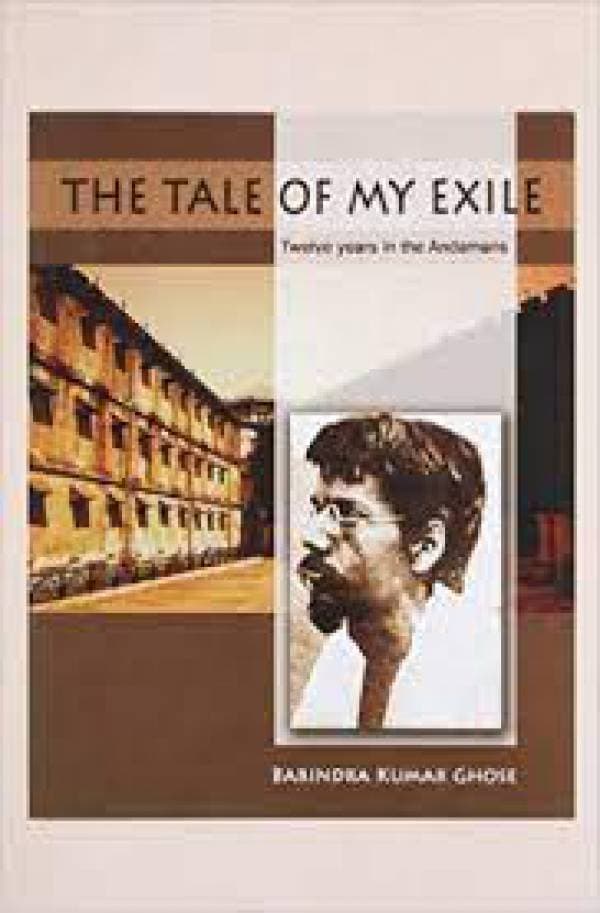Barindra Kumar Ghosh

A younger brother of Aurobindo Ghosh
An unknown and forgotten hero of India who became one of the biggest inspirations for the armed revolution. The fourth son of Kristo Dhone and Swarnaotta Ghose, Barin was born in Upper Norwood, a suburb of London, on 05th January 1880. A few months before this Dr. Ghose had completed arrangements for his elder sons to be educated in England. He returned to India alone, leaving his pregnant wife in the care of an English doctor.
He did schooling in Deoghar and here Barin got to know his older brothers, who had all returned recently from England. Aurobindo came regularly from Baroda for the Puja holidays. The Cambridge-educated intellectual got along surprisingly well with the unsophisticated youngster. As Barin grew, Aurobindo spoke to him more and more about the subject that interested him most: the motherland, which had to be freed from British domination.
Barin joined Patna college & when the plague was hit, he went to Aurobindo, and here he came to know Aurobindo was in contact with a secret society, Savarkar Brother’s Mitra Mela & Abhinav Bharath. Aurobindo sent Barindra to learn about their activities and emulate the same in Bengal. After receiving military training in Baroda, Barin came back to Kolkata & with the help of Aurobindo, Bhaga Jatin, Sachindranath & Bhupendranath Dutta (Swami Vivekananda’s Brother) revived Anushilan Samithi & became one of the founding members of Jugantar, a newspaper & later, an organization of revolutionaries.
The revolutionaries formed of the Maniktala group Barin Ghosh was a prisoner in the Cellular jail from 1909 to 1920. After the end of World War I, the British government in an amnesty Act passed on 23 December 1919, granted freedom to some selected political prisoners. Barin Ghosh was one of those who had been set free. (Note that, Savarkar was denied amnesty even then & this proves beyond doubt the fear he had instilled in the British)
“The Tale of my Exile” is a diary or a chronologically organized memoir of the 12 years that Barin spent in the Cellular jail as a political prisoner. However, his sense of trauma and bewilderment are clearly understood from the very opening lines of the tale that is written in retrospect, recalling in abstract descriptions and comments, the horrendous experience of living death. So on the first page, Barin Ghosh wrote matter-of-factly about his hazy “memory” — “This faculty seems to have fallen into a moribund condition and can only groan at its best”. Past events can only be recalled as “shadowy and uncanny images, as it were, parading in a drunken brain.” (p1) And yet, the sense of wit and humor sometimes burst forth despite the descriptions of inhuman treatment, “What a funny spectacle we must have offered then! A wooden ticket dangling from an iron ring round the neck — just like the bell that is hung on to the neck of a bullock — fetters on the leg…"
Moreover, the relentless hard work of coir twisting, oil grinding, and other manual labor for long hours made their stay in the penal colony insufferable. In chapter 11 titled, “A Summary of Sorrows”, Barin Ghosh observes with resignation about his life in the Cellular Jail, “It will unhinge any man even in ordinary circumstances, not to speak of a prisoner, to be so hunted and insulted all the 24 hours. It is quite an inevitable eventuality that many should try to find release through suicide. Those only whose hearts have turned to stone can bury their pain and count their days in the hope of a future”
Barin was released in 1920 and returned to Kolkata and started a career in journalism. Soon he left the business and formed an ashram in Kolkata. In 1923 he left for Pondicherry to join Aurobindo. He was influenced by Aurobindo towards spirituality and sadhana. Barin returned to Kolkata in 1929 and again took to journalism. He was associated with the newspaper The Statesman and later was the editor of the Bengali daily Basumati. Barin Ghosh was a prolific writer who had published 20 books after his release from the Cellular jail, in 1929. After his release, Barin Ghosh started an English weekly The Dawn Of India, worked for The Statesman, and later became editor of the Dainik Basumati in 1950. Soon after his release, he spent long years at the Pondicherry Ashram in close association with his brother Sri Aurobindo. The spirituality of the brothers Aurobindo and Barin made them transcend the challenges of a deeply complex political situation in colonial India, Barindra attained Mukti on Apr 18, 1959. The saddest part is there is no account of his activities in his final years.
Source: https://twitter.com/sheshapatangi1/status/1383781518154231820